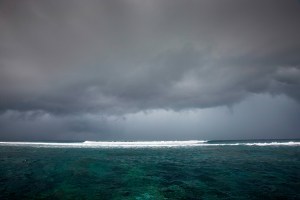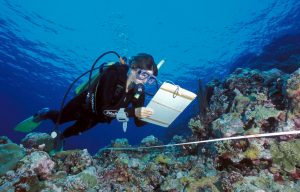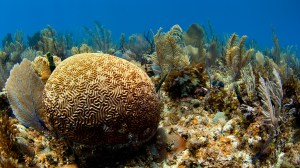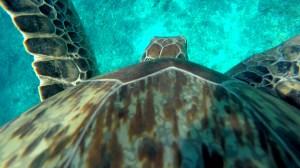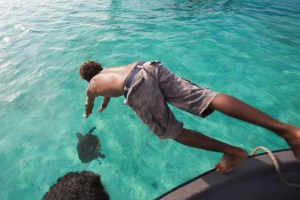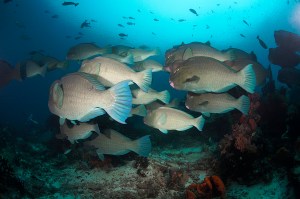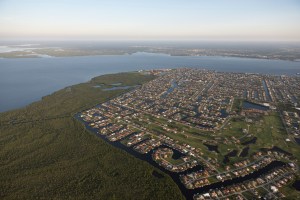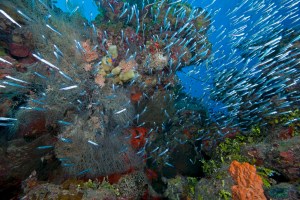Discover stories in Coral Reefs
Making Nature’s Value Visible (To All): Coral Reef Edition
To all the benefits of coral reefs, add one more: flood reduction. Without coral reefs, annual global damages from flooding would double.
Giving Back to the Ocean: Citizen Science for Clean Water
Poor water quality in Hawaii's oceans degrades corals, threatening the fish and other creatures (including people) that rely on them. A dedicated group of citizen scientists gather water samples from 48 monitoring sites off the coast of Maui.
Modeling Pollution’s Footprint on Coral Reefs
Researchers from Griffith University and The Nature Conservancy developed a new model to estimate the areal footprint of diffuse threats, like logging pollution, on ecological communities.
Field Test-Grenada: Lose the Reef, Lose the Beach
Coral reefs are the coasts’ first line of defense against erosion and flooding in many reef-lined coastlines around the globe.
Reefs Like Zombies?
Coral reefs, parrotfish, climate change, Michigan tourists, and, well, zombies.
Kids, Drones & Science at the Water’s Edge in Grenada
The future of Grenada is in good hands because kids like this — who can plant mangroves and test water quality without even wrinkling their clothes — kids like this can probably do just about anything.
Video: A Sea Turtle’s View of the Reef
Go along for the ride with a green sea turtle as it explores a reef — and meets another turtle — in the Solomon Islands.
Welcome to the Sea Turtle Rodeo
Join scientists and community rangers on a “turtle rodeo” to tag juvenile green turtles in the Solomon Islands.
Hyperstability: The Achilles’ Heel of Data-Poor Fisheries
New research indicates that hyperstability — when catches remain high even as fish are rapidly depleted — could be a major challenge for assessing data-poor coral reef fisheries.
The Effectiveness, Costs and Coastal Protection Benefits of Natural and Nature-Based Defenses
A global synthesis of field measurements shows that coastal habitats – particularly coral reefs and mangroves, can be physically and economically effective at protecting coastlines.
Wiring Up the Caribbean: Designing Marine Protected Areas for Coral Reef Connectivity
New research shows how conservationists can better incorporate coral reef connectivity into marine protected areas.
Can Traditional Agriculture Restore the Reef?
Ninety percent of the land was covered with invasive weeds. But that degraded land could hold the key to restoring the reef on the island of Oʻahu. Just add agriculture.
